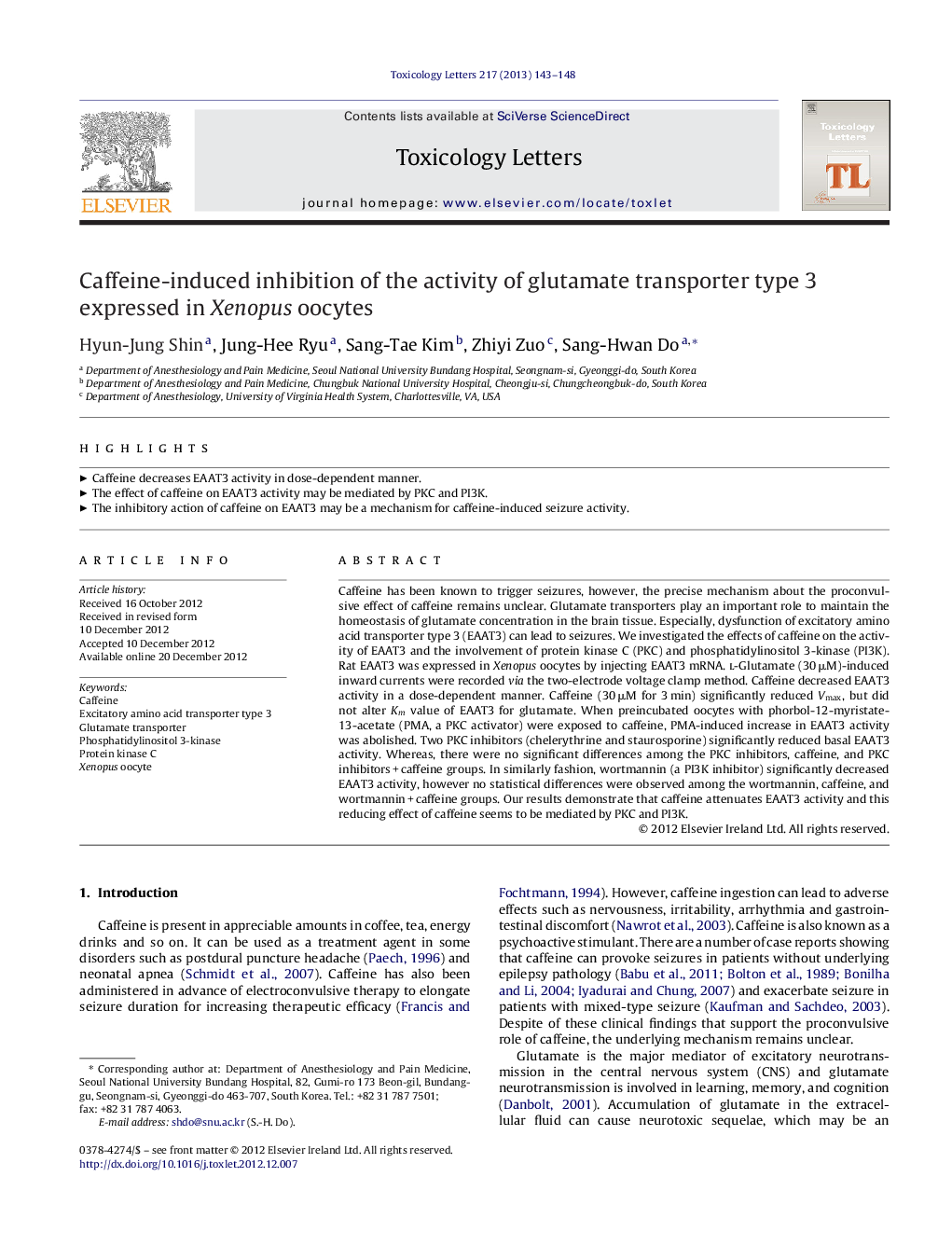| Article ID | Journal | Published Year | Pages | File Type |
|---|---|---|---|---|
| 2599392 | Toxicology Letters | 2013 | 6 Pages |
Caffeine has been known to trigger seizures, however, the precise mechanism about the proconvulsive effect of caffeine remains unclear. Glutamate transporters play an important role to maintain the homeostasis of glutamate concentration in the brain tissue. Especially, dysfunction of excitatory amino acid transporter type 3 (EAAT3) can lead to seizures. We investigated the effects of caffeine on the activity of EAAT3 and the involvement of protein kinase C (PKC) and phosphatidylinositol 3-kinase (PI3K). Rat EAAT3 was expressed in Xenopus oocytes by injecting EAAT3 mRNA. l-Glutamate (30 μM)-induced inward currents were recorded via the two-electrode voltage clamp method. Caffeine decreased EAAT3 activity in a dose-dependent manner. Caffeine (30 μM for 3 min) significantly reduced Vmax, but did not alter Km value of EAAT3 for glutamate. When preincubated oocytes with phorbol-12-myristate-13-acetate (PMA, a PKC activator) were exposed to caffeine, PMA-induced increase in EAAT3 activity was abolished. Two PKC inhibitors (chelerythrine and staurosporine) significantly reduced basal EAAT3 activity. Whereas, there were no significant differences among the PKC inhibitors, caffeine, and PKC inhibitors + caffeine groups. In similarly fashion, wortmannin (a PI3K inhibitor) significantly decreased EAAT3 activity, however no statistical differences were observed among the wortmannin, caffeine, and wortmannin + caffeine groups. Our results demonstrate that caffeine attenuates EAAT3 activity and this reducing effect of caffeine seems to be mediated by PKC and PI3K.
► Caffeine decreases EAAT3 activity in dose-dependent manner. ► The effect of caffeine on EAAT3 activity may be mediated by PKC and PI3K. ► The inhibitory action of caffeine on EAAT3 may be a mechanism for caffeine-induced seizure activity.
